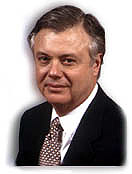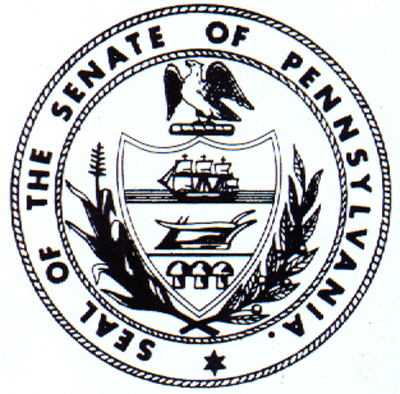|
|
||||||
AMENDMENT STRENGTHENS LOBBYIST LEGISLATION HARRISBURG, April 20, 2005 – A conflict of interest provision and a list of prohibited acts added to Senate Bill 1 today will fortify the proposed legislation regulating lobbyists in Pennsylvania, Senator Vince Fumo (D-Philadelphia) said. Following negotiations last evening, Senate Democrats and Republicans agreed to a compromise bipartisan amendment that includes much of what Fumo and other Democrats had planned to propose when the bill was called up for a vote on the Senate floor. "It’s important that Pennsylvania move forward on lobbyist disclosure and regulation. Senate Bill 1 was a good piece of legislation, and our suggestions have made it better," Fumo said. After the Senate adopted the amendment sponsored by Fumo, Senate Bill 1 then passed by a vote of 47-0. The legislation, authored by Sen. Robert Jubelirer (R-Blair), next goes to the House of Representatives. The conflict of interest provision now included in the bill parallels the one that already applies to lawyers in Pennsylvania. Lobbyists would be prohibited from switching from one client to another who is on the opposite side of the same issue. They would also be prohibited from simultaneously working for clients whose interests are adverse to one another. Lobbyists are often privy to essential data and strategic knowledge possessed by their clients. "In most cases, it is unethical to carry that kind private information to someone whose interests are adverse to those of the original client," Fumo said. "Our objective with this amendment was to ensure the ethical treatment of clients, with standards similar to those that exist for the legal profession, even when the lobbyists are not lawyers," he added. Lobbyists could seek a waiver of the restriction from the parties they represent, and previously represented. Also under the changes adopted today, lobbyists would be barred from engaging in certain actions. They are: Instigating the introduction of legislation for the purpose of being hired to lobby for it. Knowingly counseling anyone to violate the act, or any other state or federal law. Concealing the identity of an active client from a state official or state employee. Influencing or attempting to influence a state official’s or state employee’s actions through coercion, bribery or threat of economic sanction. Exercising any extortion or unlawful retaliation against a state official or employee because of his position, vote, or administrative action. Influencing legislative action by promising financial support, or by threatening financial support of an opponent. Providing loans to a member of the legislature or a public official to influence legislative or administrative action. Engaging in or counseling anyone else to engage in fraudulent acts. Committing a criminal offense arising from lobbying. Engaging in conduct which brings disrepute to the practice of lobbying or the legislative or executive branches of government. "Without this amendment, most of the above actions would not be prohibited under the lobbying act. While some of them may seem like small matters by themselves, as a whole this list of measures will help keep lobbying clean, open and fair," Fumo said. Several other amendments favored by Senate Democrats were not included in the final compromise. One would have brought public relations consultants who are trying to influence public policy under the lobbying disclosure and registration requirements. Another would have prevented someone from lobbying the state legislative chamber in which an immediate family member holds office. "We continue to believe that those are important provisions that would have improved this bill even more," said Fumo. "In any negotiation, however, both parties gain some things and give up some things. We believe that the changes we suggested are positive steps for the commonwealth, and we decided to move forward on the provisions both parties could accept." # # #
|


